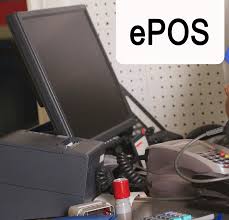If you are searching for ways to improve the efficiency of your business then you consider installing Point of Sale (POS) software. POS is a computer software that automates almost every element of a business including: cash transactions, security systems, orders, staff rotas and stock checks. It allows you to manage all of these elements using one computer system.
POS software is usually customised to fit an individual business’s needs therefore the system used for a restaurant will differ from that used for a grocery store. However, no matter what type of business you run, if you decide to install a POS system, you are guaranteed to reduce the number of manual tasks that need to be carried out in your business.
There are many different POS suppliers so you should shop around to see what each supplier is offering. While you are search for the POS suitable for your business, take the following considerations in to account:
Data Management
Make sure the POS software you choose can be used to manage all data concerning the running of your business including: staff rosters, staff attendance, stock levels and the status of orders. Also, you should ensure that it has a data analysis and reporting feature. This feature will speed up the end of day record keeping by allowing you or your staff to instantly query daily statistics such as: number of products sold, number of transactions that took place, number of faulty or out of date goods registered, number of vouchers used, and number of discounts given.
Security
Ask yourself if you want your POS software to display CCTV footage and to record the data that staff are accessing. You can have the software set up so that it is compatible with staff log in cards. This way you can ensure that not all staff members have access to the same data. An added benefit of monitoring your staffs’ access to data is that you are decreasing the chance of internal theft; this is because staff will find it difficult to ‘cheat’ a good POS system.
Flexible and Intuitive
Make sure the system you choose is intuitive and has a touch-screen interface. This will make it easier for staff to learn how to use it. The POS you choose should be adaptable to your specific business needs, for example if you run a restaurant, you might want to install a system that allows waiters to take orders on handheld devices and send them through to the kitchen wirelessly. At the end of the day, the chef might want to query the same system to see what ingredients are needed for tomorrow. The manager could then log into the POS and use it to place an order with the supplier. After the order has been placed, the POS could be used to track it.
Integration
Before you install your POS, make a list of what you would like to integrate. This list can include: tills, cctv, hand held devices, barcode scanners, stock check scanners, order forms and staff rotas. If you have digital menu boards, you could integrate those and set it up so that the menu changes depending on the time of day. Anytime you want to change an item on the menu, you can just log into the POS and edit it.
Finally, if you have multiple business locations, make sure you choose a POS that can be installed in all of your buildings. This will allow you to manage your business remotely.
This article was written by Jenna Crotty who recommends www.captiva.ie for POS software.

